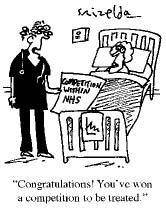‘“We weren’t phoney,” Stephen said. “Our whole point was to live an authentic life, to challenge the bourgeois conventions of our parents’ generation. We wanted to make it real.”’ Such is the lifelong aspiration of Stephen Newman, the baby boomer hero of Linda Grant’s new novel.
‘“We weren’t phoney,” Stephen said. “Our whole point was to live an authentic life, to challenge the bourgeois conventions of our parents’ generation. We wanted to make it real.”’ Such is the lifelong aspiration of Stephen Newman, the baby boomer hero of Linda Grant’s new novel. As ambitions go, it’s fairly modest. He doesn’t want to scale Everest or found a business empire or sleep with a lot of beautiful women. But making it real (whatever that may mean) turns out to be rather harder than he had bargained for.
We Had It So Good sets out to define a generation, coming emblazoned with the slogan: ‘From the writer who illuminates our times like no other.’ It charts Stephen’s progress from the Los Angeles of his childhood to a Rhodes scholarship at Oxford in the 1960s, where he meets his future wife Andrea, before taking up residence in an anarchist London squat in the 1970s. Then it’s on to work and property ownership. Andrea becomes a psychotherapist, while Stephen has a producing job making science documentaries at the BBC. There is a house in Islington, two children, plenty of friends, even the odd dinner party at which Tony and Cherie Blair are among the guests.
Along the way, certain anecdotes become ossified: the one about sharing petits-fours on the boat from America with a fellow Rhodes scholar, the young Bill Clinton; the one about their first child being conceived in Highgate cemetery, under the statue of Karl Marx. Much of the narrative is related as if it were Stephen and Andrea recounting their lives to their children. But the teenagers are less than impressed: ‘They make it all up, you know. They have to invent something to make themselves sound interesting, but do they seem interesting to you? Dad’s a bore and Mum’s a nag.’
The children are not wrong. The problem is that Stephen and Andrea and their friends are standing as representatives of a generation. As such they are made to say things like: ‘Look man, the Sixties are a carnival of ideas’ (did anyone refer to that decade as the Sixties at the time?) and, later: ‘We have lots of money and we want to live in a beach house.The guy in New York has made us so much money we can do it,’ presumably meaning that the unlucky couple have invested with Bernie Madoff. But acting as mouth- pieces for an age doesn’t make for believable, much less sympathetic, characters. Stephen and Andrea never come fully to life. This isn’t helped by the chopping and changing of tenses. I agree with Philip Pullman and Philip Hensher, that the use of the present tense in contemporary fiction limits the temporal range of storytelling. Not all of this novel is in the present tense, but I kept stubbing my toe on the parts which were.
The real stars of the novel are not the baby boomers, but their parents. ‘It seems to me now that our parents led far more significant lives than we did, that that generation was more interesting,’ says Stephen at the end of the novel. His friend replies: ‘We have been terribly lucky … we’ve had it made. I don’t know what we could have done to transform the world, it was already transformed for us. The people who won the war and made the peace did that.’
Stephen is made redundant from the BBC, pensioned off with a mild but persistent sense of disappointment. He spends his days drinking wine in the conservatory (inevitably, he and his wife added on such an extension) and, after the7 July bombings, surfing the internet to read up on Muslim extremism. It’s hard for the reader not to share his feeling that his life has not amounted to much.
Linda Grant is too accomplished a writer for this to be unintentional: that those born in the decades preceding the second world war contributed more to the world than their successors is no doubt her point. Stephen’s parents, his father a Polish Jew, his mother Cuban, are accordingly more vivid than their son. The passages near the end of the book, when Stephen’s widowed father comes to visit Europe, are especially well drawn and he turns out to be carrying a secret which adds much piquancy to the close of the story. The children are also more engaging, more alive than their parents. One wonders whether this too is deliberate, a way of highlighting the moral pallor of their parents.
There is no reason why a novel should not cause occasional bursts of irritation in the reader. The people here described are suffering, in Wordsworth’s phrase, from ‘the weight of too much liberty’ and it is impossible not to feel impatient with them, especially once they’ve grown out of acid trips and bellbottoms into unrelieved middle-class New Labour lives. Happily We Had It So Good is also funny, with a pleasing bite to its satire.






Comments